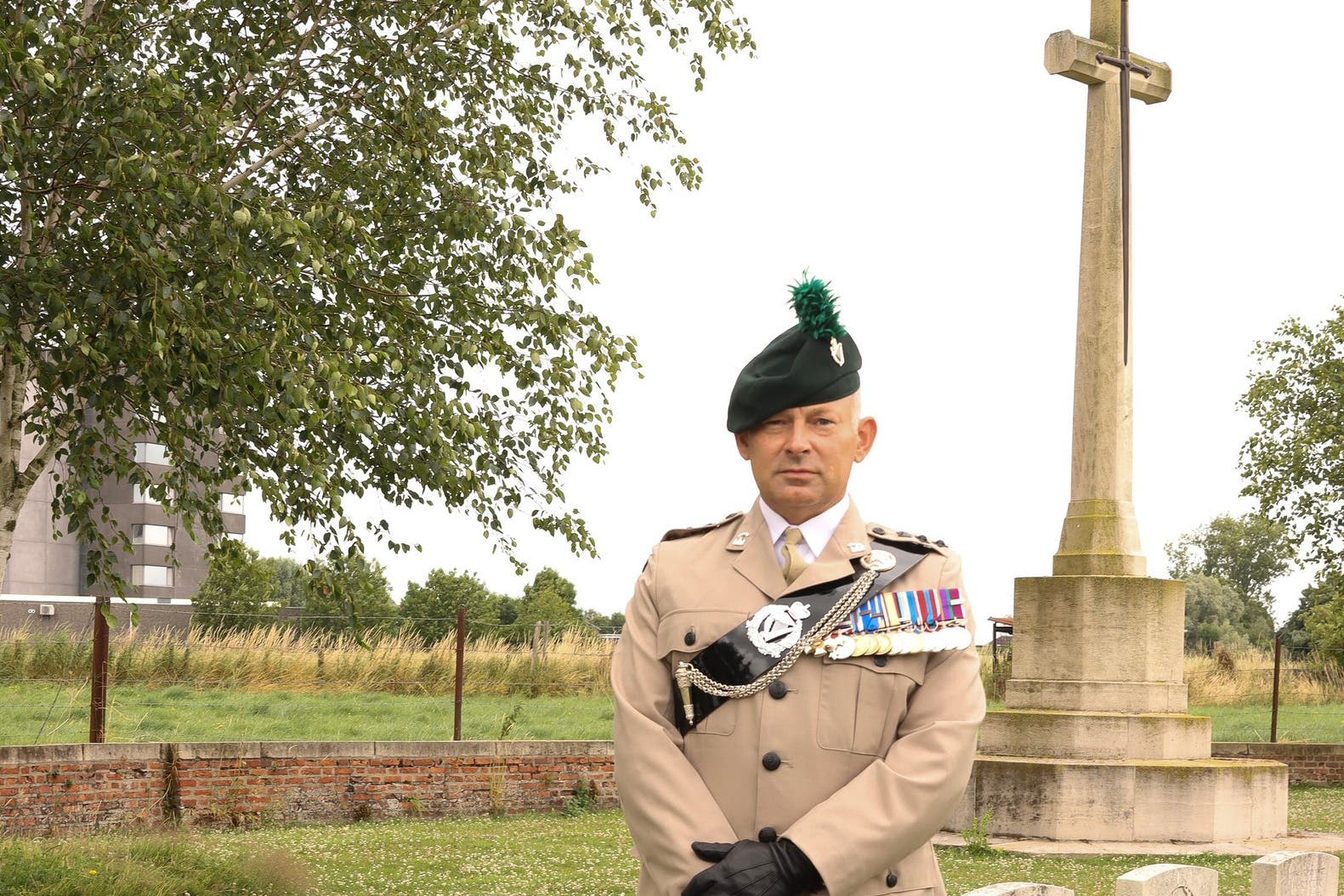Royal Irish holds ceremonies across globe to remember 18 VC recipients
Retired Colonel Tim Collins took part in one of the ceremonies.

Special ceremonies have taken place simultaneously across the globe to remember 18 Royal Irish Regiment soldiers who received the Victoria Cross.
The remembrance services took place at 11am on July 1 – the first day of the Somme battle in 1916 – at the resting places of the VC recipients in Northern Ireland, the Republic of Ireland, England, Israel, Turkey, Belgium, France and India.
Retired Colonel Tim Collins, known for a famous pre-battle speech he made in Iraq in 2003, took part in one of the ceremonies.
The Royal Irish and their associations organised the events to ensure all the soldiers’ graves were maintained and to raise money from charitable donations for the Regimental Benevolent Fund.
We are proud to have been able to take part, and even more proud to be the inheritors of the legacy of these remarkable Irish soldiers
General Colin Weir said: “This was an inspired concept designed to celebrate the rich and unique history of The Royal Irish Regiment’s 18 VC recipients.
“On July 1, we simultaneously marked their valour at numerous locations across the globe.
“This very special event had been devised by leading lights in our veteran community and was supported by today’s regiment.
“We are proud to have been able to take part, and even more proud to be the inheritors of the legacy of these remarkable Irish soldiers.”
General Weir visited the grave of Private Robert Morrow, who died in 1915 at Messines in Belgium at the age of 23.
From Dungannon, Private Morrow was awarded the VC after he rescued and carried to safety several men who had been buried in the debris of trenches wrecked by shell fire while under enemy fire.
Colonel Stewarty Douglas visited the grave in Bushmills Co Antrim of Rifleman Robert Quigg, who survived the Somme and died in his hometown at the age of 70.
A citation at the grave was read by his great nephew, Leonard Quigg.
Royal Irish Veteran Colonel Douglas said: “Rifleman Quigg is a legend in Bushmills.
“Before he enlisted in the Army he worked on the Dundarave estate owned Macnaghten family. As he set off for the front Lady Macnaghten told Rifleman Quigg to bring her sons, Sir Harry and Sir Douglas, home, dead or alive.
“Rifleman Quigg had taken part in three platoon attacks when he realised Sir Harry was missing.
“He went out a further seven times looking for his Officer and each time brought a man back to safety.
“When asked: ‘Were you not afraid of the Germans?’ he reportedly replied: ‘Sir, you don’t know Lady Macnaghten.’
“He was awarded the VC for exceptional gallantry for valour and of the four VCs awarded to our antecedents that day, Rifleman Quigg was the only recipient who lived to wear his medal.
“We are very proud of him and the example he set to us all.”
Retired Colonel Tim Collins visited the grave in Israel of Private Norman Harvey, who fought in both world wars.
He was killed in action near Haifa, Palestine, in 1942, aged 42.
Col Collins said: “Norman Harvey represents a great generation.
“Having volunteered aged only 15 he won the highest decoration for courage, having fought throughout the First World War.
“He then left his safe life and family to volunteer during the Second World War in the face of the racist threat, knowing full well what to expect.
“He was killed in action in a now almost forgotten theatre of that war, but one that was crucial to the ultimate victory.”
Bookmark popover
Removed from bookmarks